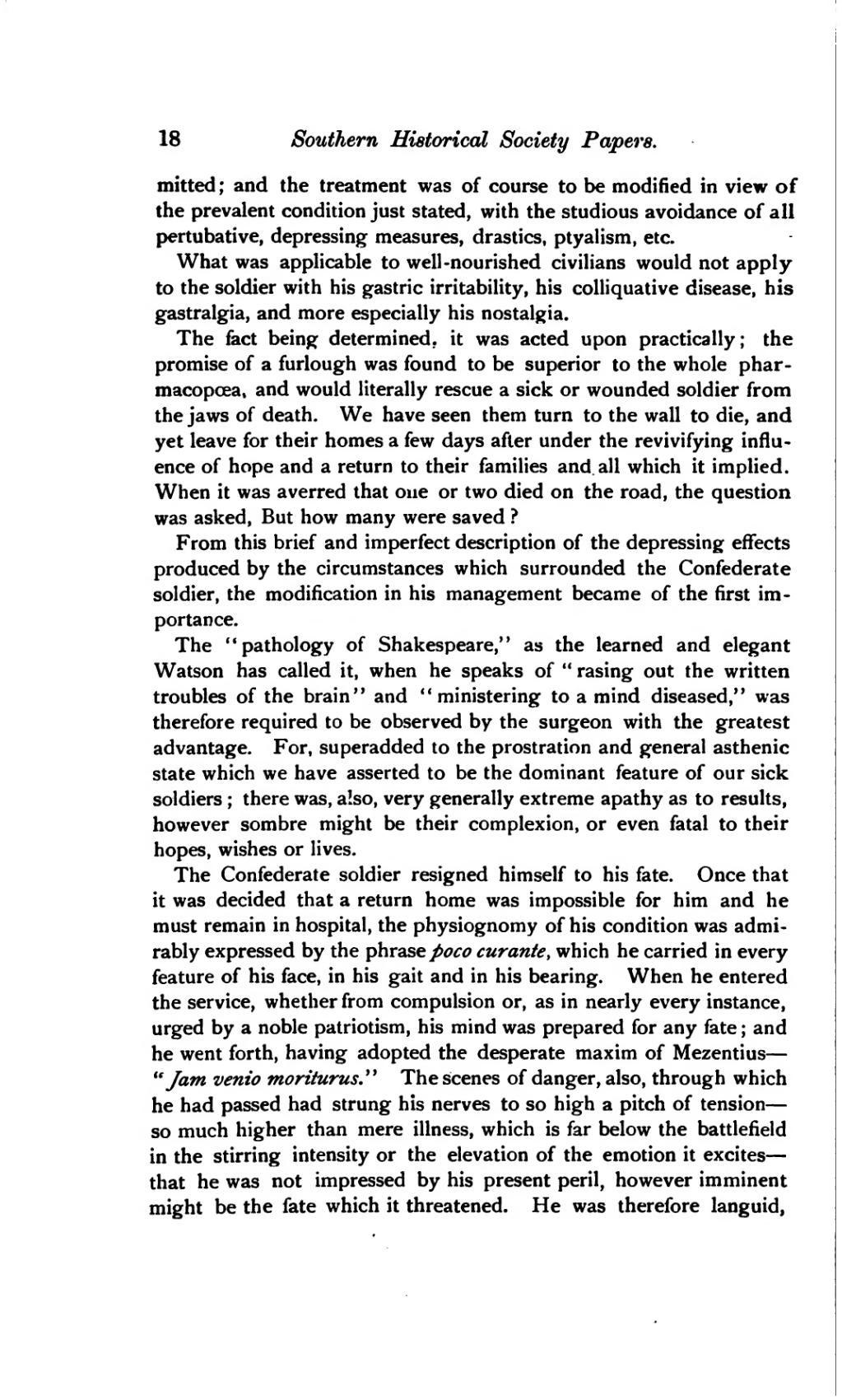18 Southern Historical Society Papers.
mitted; and the treatment was of course to be modified in view of the prevalent condition just stated, with the studious avoidance of all pertubative, depressing measures, drastics, ptyalism, etc.
What was applicable to well -nourished civilians would not apply- to the soldier with his gastric irritability, his colliquative disease, his gastralgia, and more especially his nostalgia.
The fact being determined, it was acted upon practically; the promise of a furlough was found to be superior to the whole phar- macopoea* and would literally rescue a sick or wounded soldier from the jaws of death. We have seen them turn to the wall to die, and yet leave for their homes a few days after under the revivifying influ- ence of hope and a return to their families and all which it implied. When it was averred that one or two died on the road, the question was asked, But how many were saved ?
From this brief and imperfect description of the depressing effects produced by the circumstances which surrounded the Confederate soldier, the modification in his management became of the first im- portance.
The ** pathology of Shakespeare," as the learned and elegant Watson has called it, when he speaks of " rasing out the written troubles of the brain*' and ** ministering to a mind diseased," was therefore required to be observed by the surgeon with the greatest advantage. For, superadded to the prostration and general asthenic state which we have asserted to be the dominant feature of our sick soldiers ; there was, also, very generally extreme apathy as to results, however sombre might be their complexion, or even fatal to their hopes, wishes or lives.
The Confederate soldier resigned himself to his fate. Once that it was decided that a return home was impossible for him and he must remain in hospital, the physiognomy of his condition was admi- rably expressed by the phrase /t^rt? curante, which he carried in every feature of his face, in his gait and in his bearing. When he entered the service, whether from compulsion or, as in nearly every instance, urged by a noble patriotism, his mind was prepared for any fate ; and he went forth, having adopted the desperate maxim of Mezentius — ^' Jam venio moriturusJ*^ The scenes of danger, also, through which he had passed had strung his nerves to so high a pitch of tension — so much higher than mere illness, which is far below the battlefield in the stirring intensity or the elevation of the emotion it excites — that he was not impressed by his present peril, however imminent might be the fate which it threatened. He was therefore languid,
